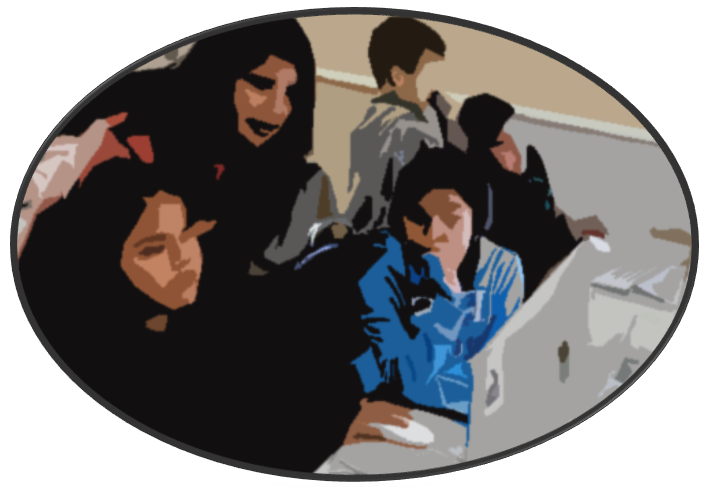Does "tech skills for all" really mean all in your district?
 Monday, March 20, 2017 at 05:40AM
Monday, March 20, 2017 at 05:40AM Last month our district's Instructional Technology Coordinator planned a report that was given at a school board meeting on "coding." It went very well since students from multiple grade levels demonstrated both their skills and their enthusiasm for grade-appropriate coding activities and their teachers spoke to why the activities were both enjoyable and important for the students.
It was remarkable.
 Wait, you say, I could (or have) prepared such reports myself. Our school teaches coding to students as well. I would bet nearly every school could find some students who code, so what makes this event remarkable?
Wait, you say, I could (or have) prepared such reports myself. Our school teaches coding to students as well. I would bet nearly every school could find some students who code, so what makes this event remarkable?
What makes me proud is that every K-8 student in our district could have presented at that meeting. Thanks to the diligence and dedication of our Digital Learning Specialists at the elementary level and our exploratory classes at the middle school, all kids get to experience and practice coding in our school - not just those lucky enough to have a techno-savvy teacher.
All of our students also learn digital citizenship, experience makerspaces, access e-books through MyOnReader, and learn how to create Google Sheets, Docs, and Slides. And other techie stuff too.
Fifteen years ago I angered a lot of my fellow library professionals by writing a piece for School Library journal called Real Flexibility. The piece defended, gasp, fixed library programs - those in which all students went to the school library on a regular basis and were taught a library and technology skills curriculum by the library media specialist.
As technology skills grow in even greater importance to our students' academic, vocational, and social future, I will continue to stand by the need for every child to be taught such skills by a trained specialist - library media specialist or digital learning specialist or whatever you might call them. Too many classroom teacher can not or will not teach tech skills.
When your promotional material reads "technology skills for all students" does it really mean all - or just all those with teachers who enjoy technology?








Reader Comments (5)
Great point! I'd love to have classes scheduled. The only way we can ensure that we reach all students at our high school is by working with the freshmen (so yes in this case all means just the freshmen class) health teacher. She is the only teacher who sees every single freshmen so we are ensured we reach everyone. We've come up with a series of lessons- an overview of the library where we introduce databases, website evalutation, digital citizenship, how to detect fake news, and an overview of search strategies.
We do work with other classes but as you said that is dependent on the teacher bringing the class to us. We are so happy to have formed this partnership with the health teacher. It is a win/win for everyone!
Many of our students do not speak English so it has forced us to find resources in Spanish and to get our assesments (we use google forms) translated. But we think in this way everyone is getting the basics of information and digital literacy.
Hi Debra,
High Schools are certainly more challenging when it comes to reaching all students. We've done some training on Chromebook use and etiquette as part of required classes when we started the 1:1 project this year and that worked well.
In reality, if we do this right, all kids should have the fundamentals by the time they reach HS and in HS they can apply digital skills to content area classes. While there is always more to learn, older kids should be learning in context.
All the best,
Doug
Hi Debra,
High Schools are certainly more challenging when it comes to reaching all students. We've done some training on Chromebook use and etiquette as part of required classes when we started the 1:1 project this year and that worked well.
In reality, if we do this right, all kids should have the fundamentals by the time they reach HS and in HS they can apply digital skills to content area classes. While there is always more to learn, older kids should be learning in context.
All the best,
Doug
My view is that many administrators believe that today's students have either taught themselves the necessary technology skills or still remember their 5th and 6th grade class materials. Of course - since they use a computer every day, how could they not already know?
I refer to the phrase "Practice makes perfect" - but have never believed that phrase. "Perfect practice makes perfect" is what that phrase needs to be changed to.
HI Kenn,
Your observation is a good argument for why schools need a written set of technology competencies/curriculum which all students should be expected to master. These would include information literacy skills!
Doug